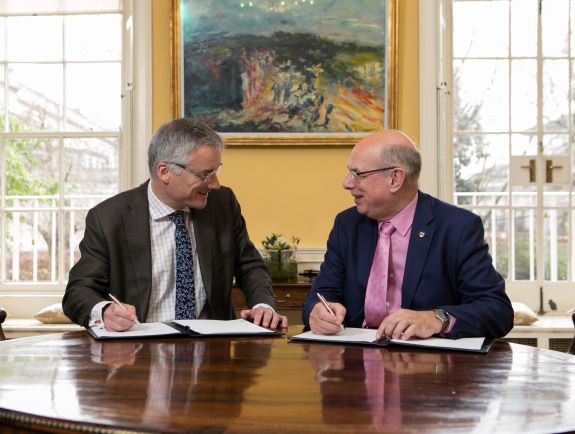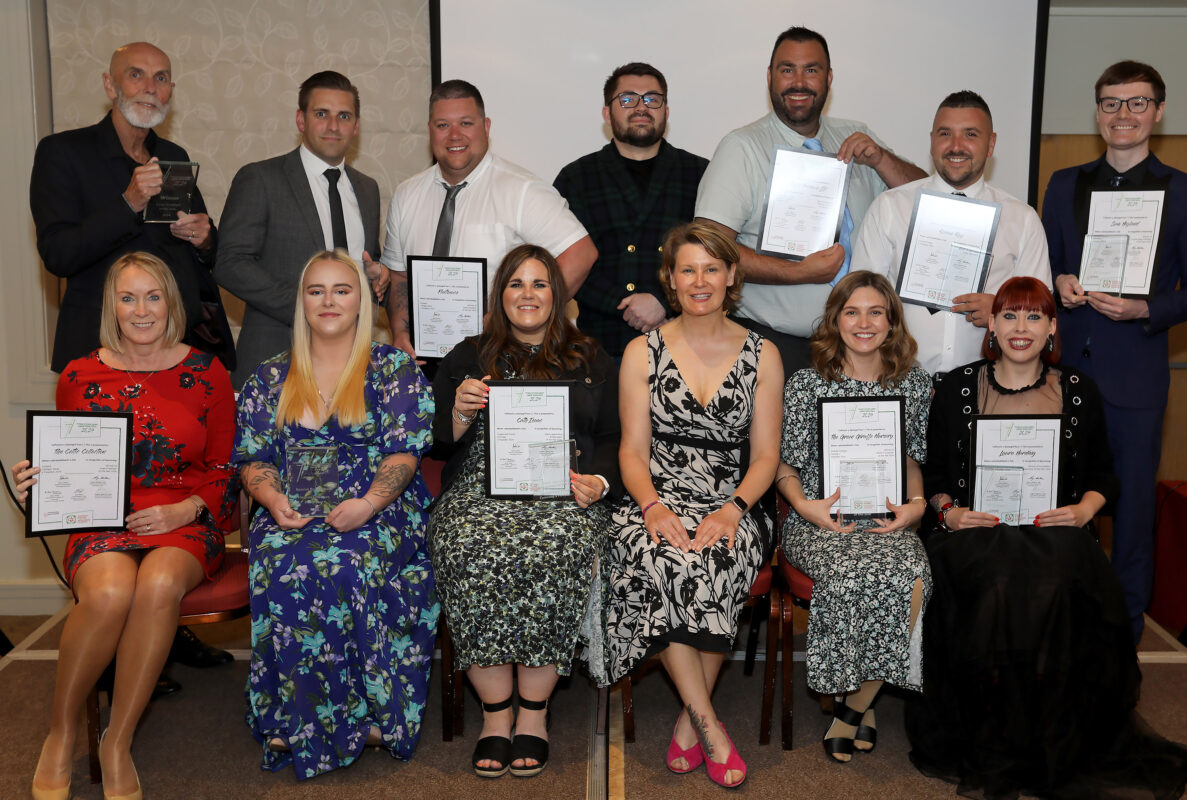University of Birmingham and Trinity College Dublin launch new partnership

The University of Birmingham and Trinity College Dublin today launched a strategic research and education partnership which aims to strengthen European academic links and enhance collaborative research outputs.
Experts from each University will work together initially across three shared research strengths: clinical trials and training; biomaterials; and digital textual editing. Further joint areas will be developed as the partnership matures.
And as students face uncertainty about study opportunities in Europe post-Brexit, the two universities will create exchange opportunities through a student mobility agreement allowing Birmingham students to spend time studying at Dublin, and vice-versa.
Today’s partnership agreement was signed at a special ceremony by Trinity College Dublin Provost Dr. Patrick Prendergast and University of Birmingham Vice-Chancellor Professor Sir David Eastwood.
Dr. Patrick Prendergast commented: “I am delighted to announce Trinity College Dublin’s collaboration with the University of Birmingham. Advances are made through partnership with others. It is partnerships that have enabled Trinity to enhance its global standing as a place of learning giving equality of opportunity to all with the talent and ambition to succeed.
“I look forward to working closely with the University of Birmingham over the coming months, to strengthening our research links and building our student exchange programmes at such a critical time for both our countries.”
Professor Sir David Eastwood commented: “Europe continues to be a region of key importance for the University of Birmingham – in both research and education. As a major strand in our global engagement strategy, we are building and strengthening partnerships with priority institutions across the EU, and are delighted to agree this key partnership with TCD.
“We are proud to join Trinity College Dublin in a partnership between two internationally leading universities built on our complementary strengths. We believe our collaboration will produce high-profile research with global impact, as well as excellent opportunities for students in Ireland and the UK as the importance of UK-Irish Higher Education engagement continues to grow.”
The research foundations of the strategic partnership cover the following areas:
Digital Engagement and Editing Partnership (DEEP)
Shared expertise in digital editing (Birmingham) and digital humanities (Trinity) will combine to form a research partnership which aims to investigate the ways in which the digital world impacts upon argument, perceptions of authorship and authority structures.
Clinical Trials and Training
An ambitious portfolio of partnership opportunities, including research workshops, clinical placements for medical students, and, longer-term, joint PhDs and split appointments, will cement long-standing links between our Medical Schools. Complementary Clinical Research Facilities (CRFs) provide the framework for the partnership – taking advantage of wider links with respective hospitals in Dublin and Birmingham.
Bioengineering
Birmingham’s Institute for Translational Medicine and Trinity’s national centre for Advanced Materials and BioEngineering Research (AMBER) provide the platform for joint research endeavours and the development of joint post-graduate programmes.
The Universities will also collaborate across professional services – developing best practice exchange, initially around online time-tabling and academic year structure, as well as the operational management of university facilities.











Responses